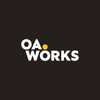Team Button Tuesdays: Sucheta and Joseph
Behind the Open Access Button is a team of international student volunteers. Get to know them on Team Button Tuesdays! This week meet Sucheta, one of our secretaries, and Joseph, our Press Coordinator.

Sucheta Tiwari, Secretary
Hi, I’m Sucheta! I’m a new addition to the secretarial team on The Button and am very excited about the future of the project!
I finished my medical degree from New Delhi, India in 2013 and I’m about to graduate from Oxford with an MSc in Global Health. I am passionate about medicine, public health and science in general. In the field where I come from, information literally saves lives. My experience with higher education in two very different parts of the globe has made me acutely aware of the shortcomings in the availability of relevant knowledge to people who need it- be it researchers working on finding cures, or patients looking for recent evidence.
Having been on both sides of The Paywall as a student researcher, I can confirm first hand that access to evidence is a need that needs to be filled urgently. I am especially interested in medical research in low middle income countries, where not only is the amount of research done far from optimum (the infamous 90/10 gap in health care research), but institutional capacity in general is so poor that it doesn’t ensure access to recent evidence. It is an almost systematic neglect in capacity building in research where the price is paid by underprivileged societies.
I believe that Open Access will allow researchers and advocates in low-middle income countries to strengthen capacity to address local problems. The world is changing at a previously unfathomed pace; it’s time knowledge transfer caught up.

Joseph Paul, Press Coordinator
Hi, I’m Joseph and I am the Press Coordinator for the Button! I am an undergraduate studying molecular and cellular biology in North Carolina but I am currently in California doing a fellowship in genetics for a few months. Although my background may make it obvious, a large portion of my time is spent reading papers online, many of which lie behind paywalls. I am fortunate enough to have access to many of these publications through my university’s library however the vast majority of the world is unable to view any of this material. I turned to the Button to take advantage of an opportunity to be part of a larger movement aimed at changing the publishing system for good.
As both a student and researcher, I am frequently providing access to published research to my colleagues at other institutions and I can now appreciate how valuable my access to journal subscriptions would be elsewhere, especially in a developing country. Rapid globalization via the Internet has made it possible for published research to be shared with everyone. Research progress is occurring at increasingly collaborative levels. This would suggest that increased access to published research is possible and would result in more discoveries and marked advances in knowledge. I believe that Open Access research is a critical component of the future of academia and transparency to the public. The peer review system helps communicate large quantities of evaluated research everyday, too often published in closed access journals and hidden from the vast majority of people. Our generation has the opportunity to demand that governments and publishers resolve to ameliorate this global inequality
I enjoy volunteering for the Button in part because of interdisciplinary approach and powerful, yet simple technology that has become critical for the Open Access movement. Finally there is common platform to facilitate the quantification of paywall impact worldwide. But I have been extremely impressed that the Button also elegantly highlights individual experiences by providing an outlet for anyone to share the unique story behind each instance of injustice. I am humbled by the public’s overall lack of access to research but I am also enthusiastic to be part of the Button and the much larger Open Access movement. I look forward to the day that a physician in sub-Saharan Africa is able to better treat an infectious disease and that a South American archaeologist can identify a new Incan artifact because of free and convenient access to all published research.

